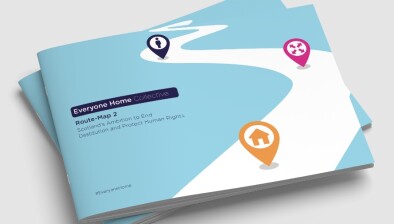Blog: The Unaffordable Private Rented Sector: Why it’s time to thaw the LHA freeze
 Aoife Deery outlines Shelter Scotland’s concerns about the impact welfare reform is having on renters.
Aoife Deery outlines Shelter Scotland’s concerns about the impact welfare reform is having on renters.
Last week, the Scottish Government published its third report into the impact of welfare reform, which confirms worries that the private rented sector is increasingly unaffordable for many and especially those on benefits and low incomes.
The report, which had a specific focus on housing, considered the impact of welfare reform on both tenants and landlords and reflected on possible future impacts for housing.
The report showed that;
It’s fair to say that none of these either real or anticipated negative impacts come as any surprise to us at Shelter Scotland. These just skim the surface of the depth and complexity of issues which our advisers help clients with every day.
We are particularly concerned about tenants or prospective tenants in the private rented sector because LHA largely does not meet the real cost of renting and people’s incomes are being squeezed. Last year almost half of the 21,000 people who approached us for help came from the PRS, with affordability being the single biggest issue we supported people with. LHA is meant to allow access to the bottom 30% of the rental market, but according to the report, only two out of 18 broad rental market areas achieved this for a two-bed property (the most common property size in Scotland), and none across all property sizes (i.e. 1-bed, 2-bed etc). Even more concerning is that in four areas the LHA rate would cover rent for less than 10% of 2 bed properties.
There is also a worry that welfare reform will cause private landlords to become more restrictive in who they let to or withdraw from the market altogether: no one should be discriminated against for using the benefits to which they’re entitled to pay their rent, and yet we know that for many people this is the reality. Coupled with this, we know from our clients that many rent deposit guarantee schemes are closing or becoming more restricted across Scotland, making that first difficult step of securing a deposit even harder. So where are people on low incomes who can’t access or can’t wait for a social tenancy that meets their needs meant to live?
Recent successes in reforming the private rented sector are of no use to those who can’t get into the market due to barriers such as those described above. At the minimum, we again call for local housing allowance to be unfrozen so that it reflects the real cost of renting and gives people on low incomes a real chance of getting into and living sustainably in the private rented sector.
Overall, this report begs a number of questions. Why are we constantly patching things up? Why are we putting up with substandard and sometimes frankly dangerous welfare policies that push people and families into poverty? Why as a result are we closing off housing options to people when we should be widening them? Welfare reform as it stands severely undermines the direction of travel we want to see, which is towards a Scotland where people are adequately, affordably and safely housed. While introducing a system of welfare which encourages people (where appropriate) into work with the right supports is largely positive, when it becomes punitive, does not meet individual needs and increases the risk of homelessness through no fault of the person’s own, that’s when it has to stop.
This blog was originally published on the Shelter Scotland website.








